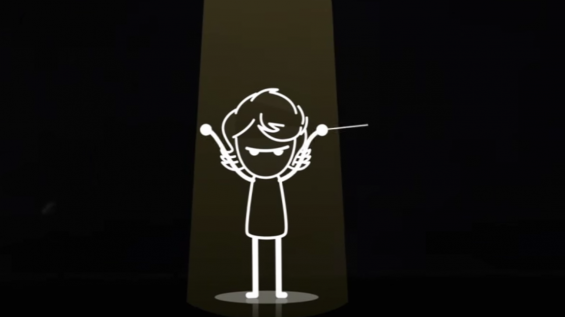
The math behind Beethoven’s music (in TED-Ed GIFs)
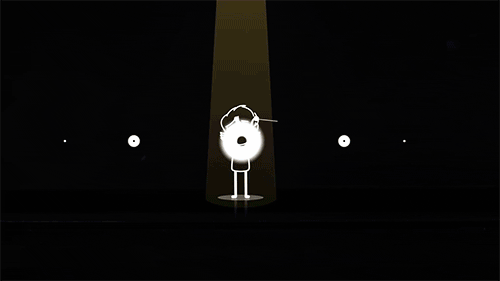
How is it that Beethoven, who is celebrated as one of the most significant composers of all time, wrote many of his most beloved songs while going deaf? As Natalya St. Clair explains below, the answer lies in the math behind Beethoven’s music.
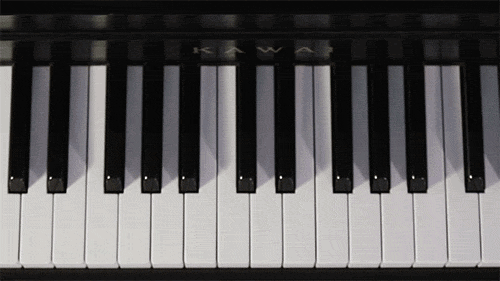
The standard piano octave consists of 13 keys, each separated by a half step. A standard major or minor scale uses 8 of these keys with 5 whole step intervals and 2 half step ones. Using the “Moonlight Sonata,” we can begin to understand the way Beethoven was able to convey emotion and creativity using the certainty of mathematics.
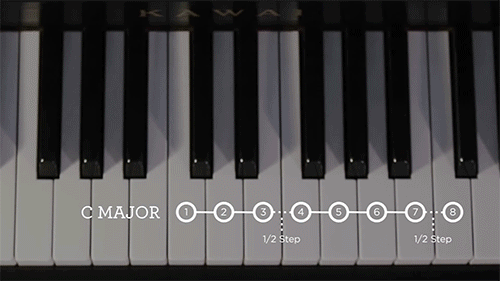
The first half of measure 50 of “Moonlight Sonata” consists of three notes in D major, separated by intervals called thirds that skip over the next note in the scale. By stacking the first, third, and fifth notes — D, F sharp, and A — we get a harmonic pattern known as a triad.
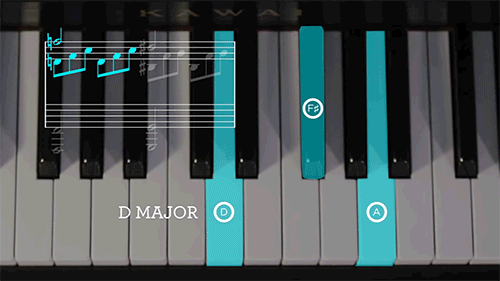
But, these aren’t just arbitrary magic numbers. Rather, they represent the mathematical relationship between the pitch frequencies of different notes, which form a geometric series. The stacking of these three frequencies creates ‘consonance’, which sounds naturally pleasant to our ears. Examining Beethoven’s use of both consonance and dissonance can help us begin to understand how he added the unquantifiable elements of emotion and creativity to the certainty of mathematics.
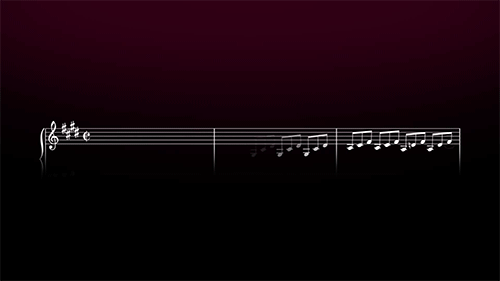
For a deeper dive into the mathematics of the “Moonlight Sonata,” watch the TED-Ed Lesson: Music and math: The genius of Beethoven:
To learn something new every week, sign up here for the TED-Ed Newsletter.



Thanks for your article. As a beginner-intermediate mature student in music I found your music and math very interseting.
Enriching
Yeah, you see this kind of thing a bit – and it’s not really true. Well it is, but it’s misleading. Math is the language man has created to help us describe our physical surroundings – so of course everything we create can be described using maths. That doesn’t mean music is based on maths – just that you can describe it with math. If anything, it’s based on physics – which creates the vibrations we hear as sound. However why certain sounds are pleasurable to us, or why we respond to rhythm, or why it is clearly an inherent human characteristic to create music – it remains a mystery why. It is hard to find any evolutionary advantage to explain why we should respond to it.
very intersting
Very cute bro! ._.
Wow